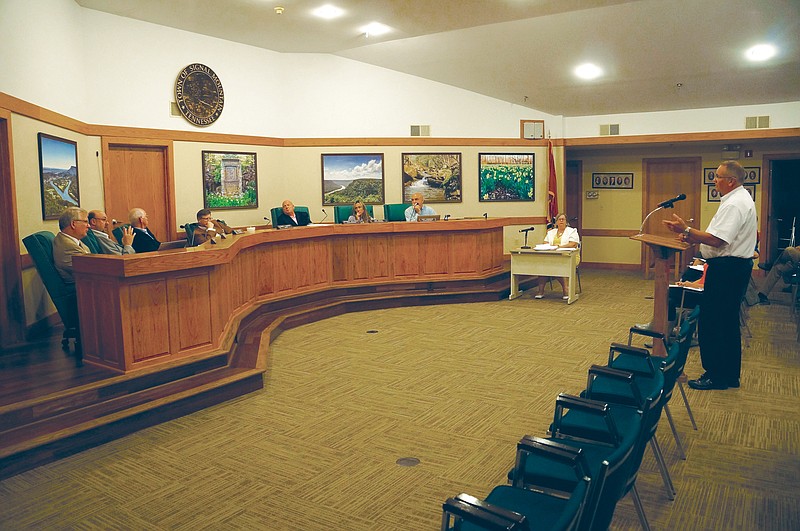With the second reading of the town of Signal Mountain's fiscal 2018 budget last week, the Signal Mountain Town Council approved a 32-cent increase in property taxes and dissolved the 15-cent tax adopted in 2007 to pay for the local high school.
With Signal's new certified tax rate coming in at $1.3965 per $100 of assessed value due to countywide property reappraisals, the change brings the town's property tax rate to $1.5665 per $100 of assessed value, just barely down from last year's rate of $1.5684.
The additional 32 cents are expected to generate more than $90,000 for the town each year, officials said. The funds will be used to offset the first round of reductions from the Hall tax, which is expected to bring in an estimated $125,000 less each year until it is completely phased out in 2022. The money will also help to fund upcoming projects, like the new fire station planned for Shackleford Ridge Road.
On Thursday, Aug. 24, Walden will hold a specially called meeting for residential input before having the final reading for its own new proposed certified tax rate, $0.3853 per $100 of assessed value.
During their regular town hall meeting Aug. 8, Walden officials chose to adopt the tax rate recommended by the Hamilton County property assessor's office to avoid an unintentional tax increase, which they said would occur if they opted to keep the current rate, $0.4290 per $100 of assessed value, even after the assessor's reappraisal raised property values 10 percent.
"So even if we keep it at the 42-cent rate, if your appraisal went up, you'd be paying more taxes," Walden Mayor Bill Trohanis said, adding that keeping the current rate would generate an additional $32,000 for the town.
Town Recorder Fern Lockhart noted that Walden will also be impact by the loss of the Hall tax. The town brought in around $215,000 in 2015 from various state income taxes, most of which was from the Hall tax. But Alderman Lee Davis said he wouldn't want to blindside citizens by making that decision too quickly, adding that he wants residents to have more time so they can add input.
"To me, it makes more sense, if we want to have a tax rate increase, let's do it next year," Davis said.
Hall tax discussions
Signal Mountain Mayor Chris Howley called this year's budgeting process "one of the more grueling" in recent history. The proceedings were only made more challenging by a state re-evaluation of Hall tax distribution. Earlier this month, the state notified the town of Signal Mountain that the redistribution will result in about $90,000 slated for Signal going to Walden instead.
The tax on interest from bonds and stock dividends is divvied up by the taxed individual's town or county of residence.
"Everyone up here has a Signal Mountain address," explained Town Manager Boyd Veal, who said the re-evaluation was not uncommon. "That kind of muddies the waters."
The additional reduction leaves Signal about $60,000 below what it had originally anticipated for its 2016 Hall tax income, and Councilman Dan Landrum proposed an additional 2 cents be added to the 32-cent tax bump to prepare for the loss.
"It would make more sense to get our budget in a solid position moving forward," he said.
The proposal was voted down 3-2, with Howley arguing against instituting a permanent tax raise for what he said was only a temporary problem.
"We aren't even certain there's going to be a reduction," he said, pointing out that the revenue generated from the Hall tax fluctuates each year. "We could very well likely make more than we projected on Hall tax revenue next year. We don't know."
If incoming Hall tax revenue falls short of what is budgeted, officials said they will make up funds by dipping into the town's financial reserves, which are already 10 percent over what the state requires.
